16 Sep 2025
Last week, the Zhejiang University International Business School (ZIBS) welcomed a high-level delegation from Brazil’s National Service for Industrial Training SENAI. Assistant Professor Dr Niklas Weins from the Department of International Studies, HSS, XJTLU, accompanied the group during a company visit in Shanghai and contributed a guest lecture at a dedicated roundtable.
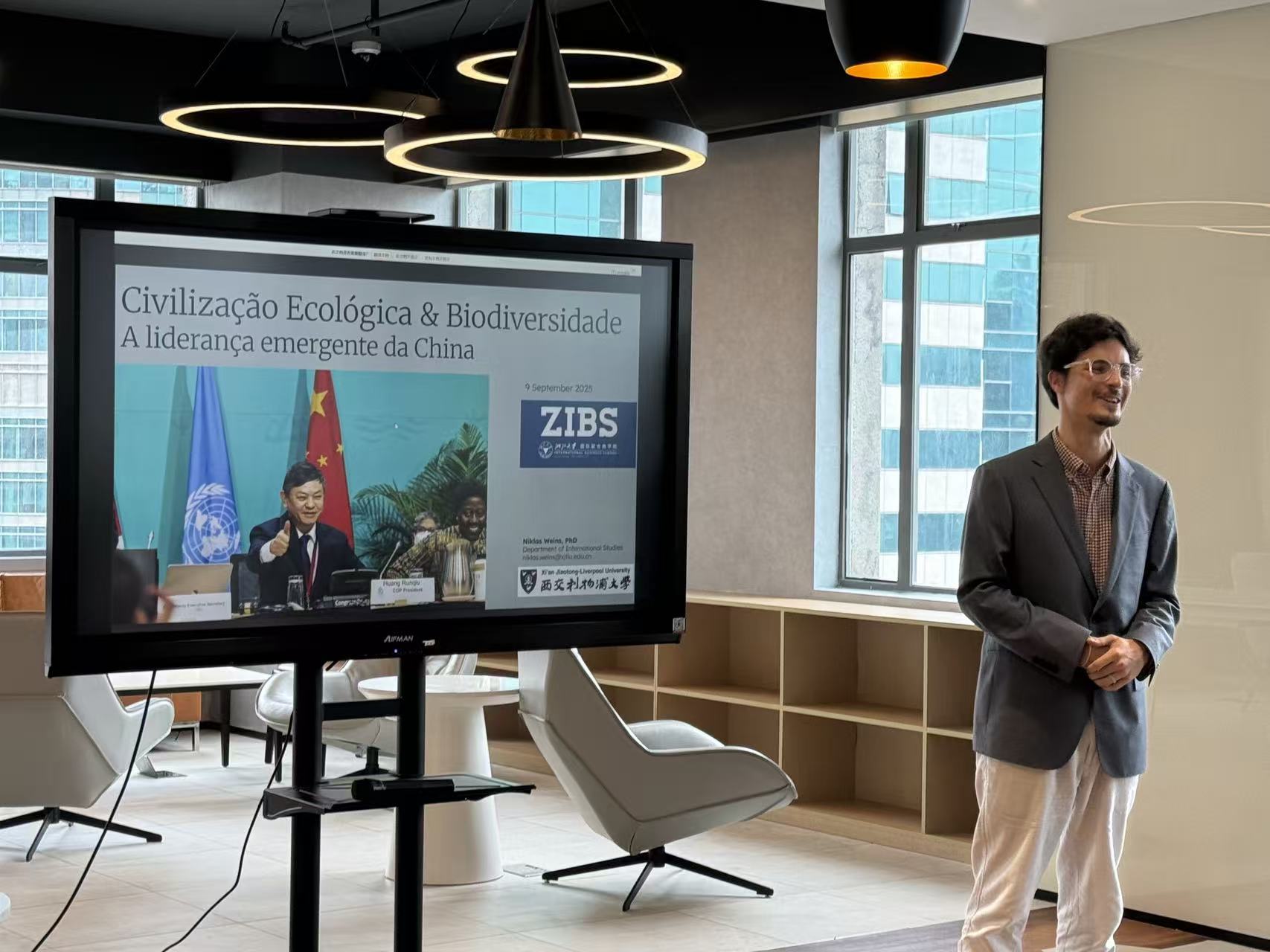
Brazil’s SENAI is part of Brazil’s Sistema Indústria, coordinated by the National Confederation of Industry (CNI). CNI represents more than 930,000 companies and over 1,306 industrial trade unions, making it the principal operator of Brazil’s industrial system.
Its recently founded network of specialists working on the bioeconomy in innovation centers all over Brazil visited China for the first time. The delegation was received by Rodrigo Moura, Executive Director of the Latin America Center and Coordinator for Latin America at the Zhejiang National Science Tech Park. The visit aimed to explore synergies between Brazil’s rapidly evolving bioeconomy and China’s paradigm of Ecological Civilization.
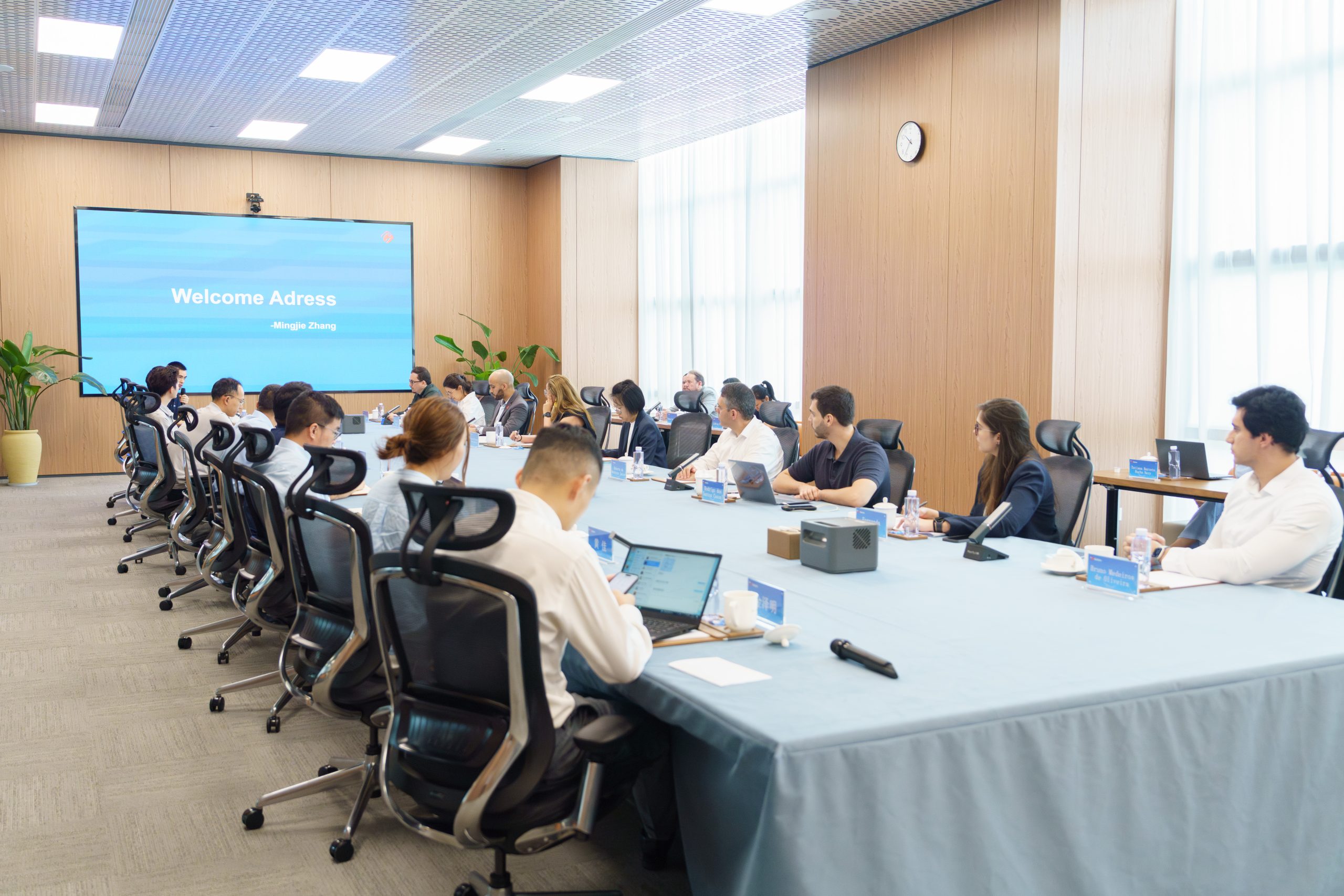
Industry visit at Gotion High-Tech
The delegation’s itinerary included an visit Beijing, Hangzhou and finally Shanghai, where they were welcomed into the innovation center of Gotion High-Tech (国轩高科), one of China’s foremost battery manufacturers which has Volkswagen as its major shareholder. The participants got a peak into the company’s innovation ecosystem, and discussed global supply chain integration, sustainability metrics, and the company’s strategic positioning within the energy transition. The discussions revolved around how advanced battery manufacturing is not only a technological challenge but also an institutional lever linking material sourcing, environmental risk management, and policy frameworks for decarbonisation and emissions reduction.
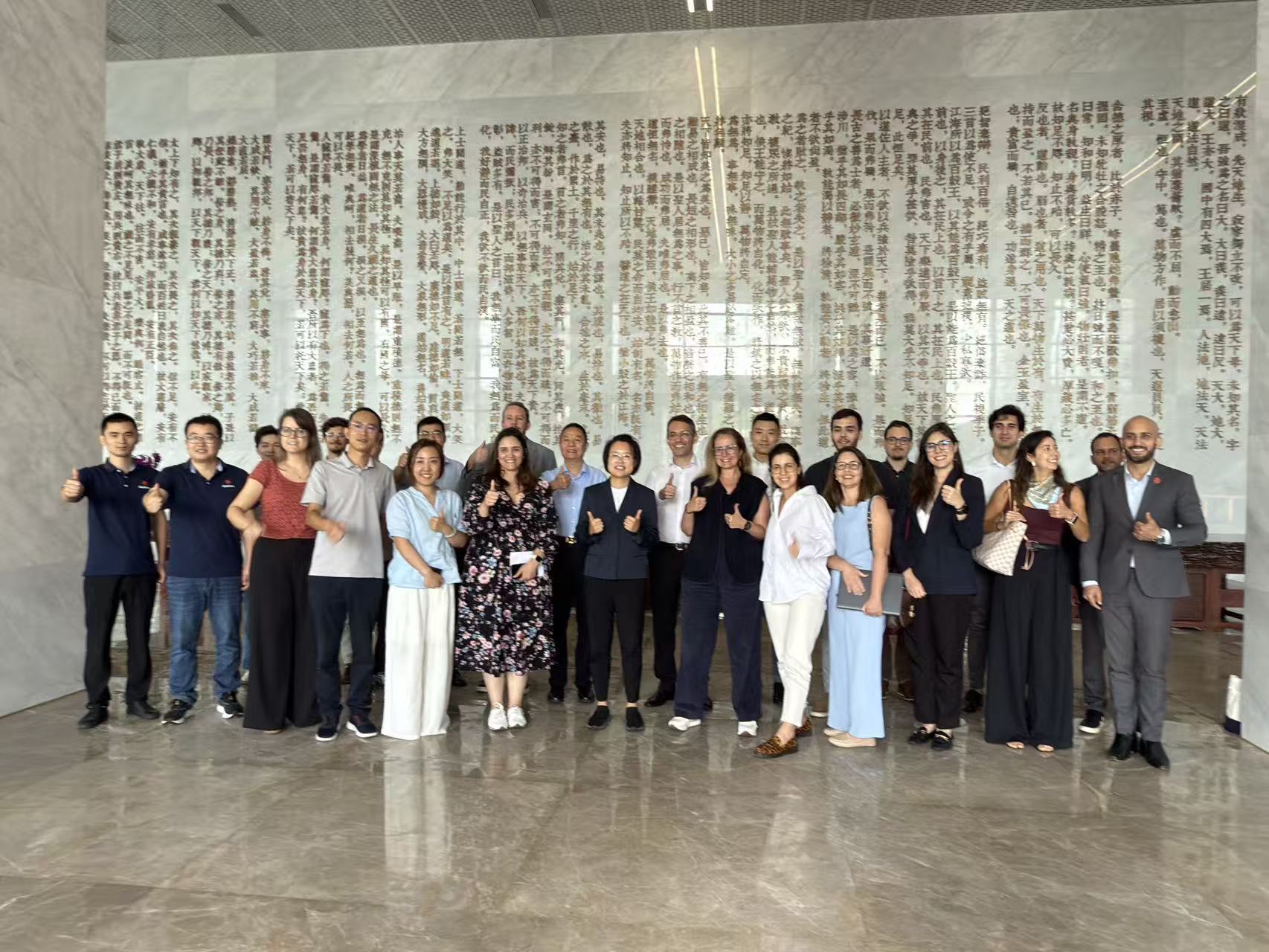
Guest Lecture: Ecological Civilization and Biodiversity: China’s Emerging Leadership
Following the site visit, Dr Weins delivered a keynote lecture at the ZIBS Shanghai office. His presentation, “Ecological Civilization and Biodiversity: China’s Emerging Leadership”, mapped out how ecological principles are being embedded into China’s long-term planning architectures and biodiversity policy regimes. Core themes included:
• Ecological Civilization as strategic axis: from conservation and restoration to pollution control and sustainable land use that have become a pillar of socialism with Chinese characteristics.
• Biodiversity as an economic resource: positioning ecosystem services, green infrastructure, and biofertilizers at the intersection of environment and innovation.
• Reflections on the complementarities between China and Brazil: leveraging Brazil’s biodiversity and research traditions in agriculture and biotechnology to balance industrialization with ecological stewardship.
• Multi-stakeholder governance: fostering dialogue across academia, industry, and policy to align global bioeconomy pathways with biodiversity conservation.
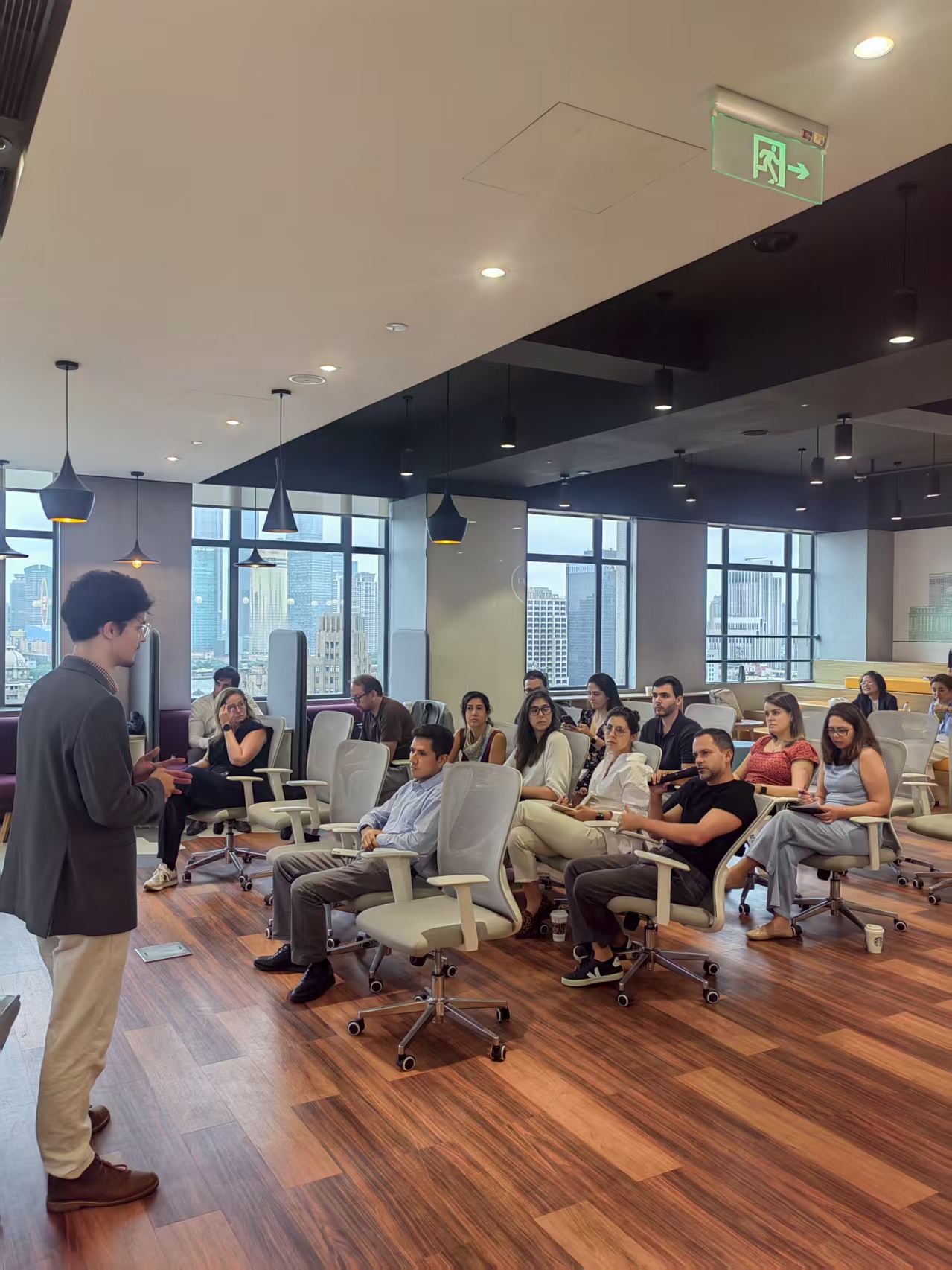
Strategic Reflections & Global Significance
For the SENAI delegates, the exchange highlighted how Brazil’s immense natural assets and institutional capacity including renewable biological resources and applied research, can connect with China’s environmental strategies. The Chinese case studies the group got to explore during their visit, exemplified by Gotion and the national Ecological Civilization framework, demonstrated how political commitment, industrial policy, and targeted investments can converge rapidly to accelerate sustainability transitions.
The roundtable also featured contributions from Hugo Sámano-Sánchez (Mexico) of the Zhejiang University-University of Edinburgh Institute (ZJE), reinforcing the event’s role as a platform for South-South and transnational dialogue. In this context, the cooperation between XJTLU and ZIBS underlined the two universities’ commitment to positioning themselves in interdisciplinary research, local and cross-regional cooperation, and critical engagement with sustainability agendas.
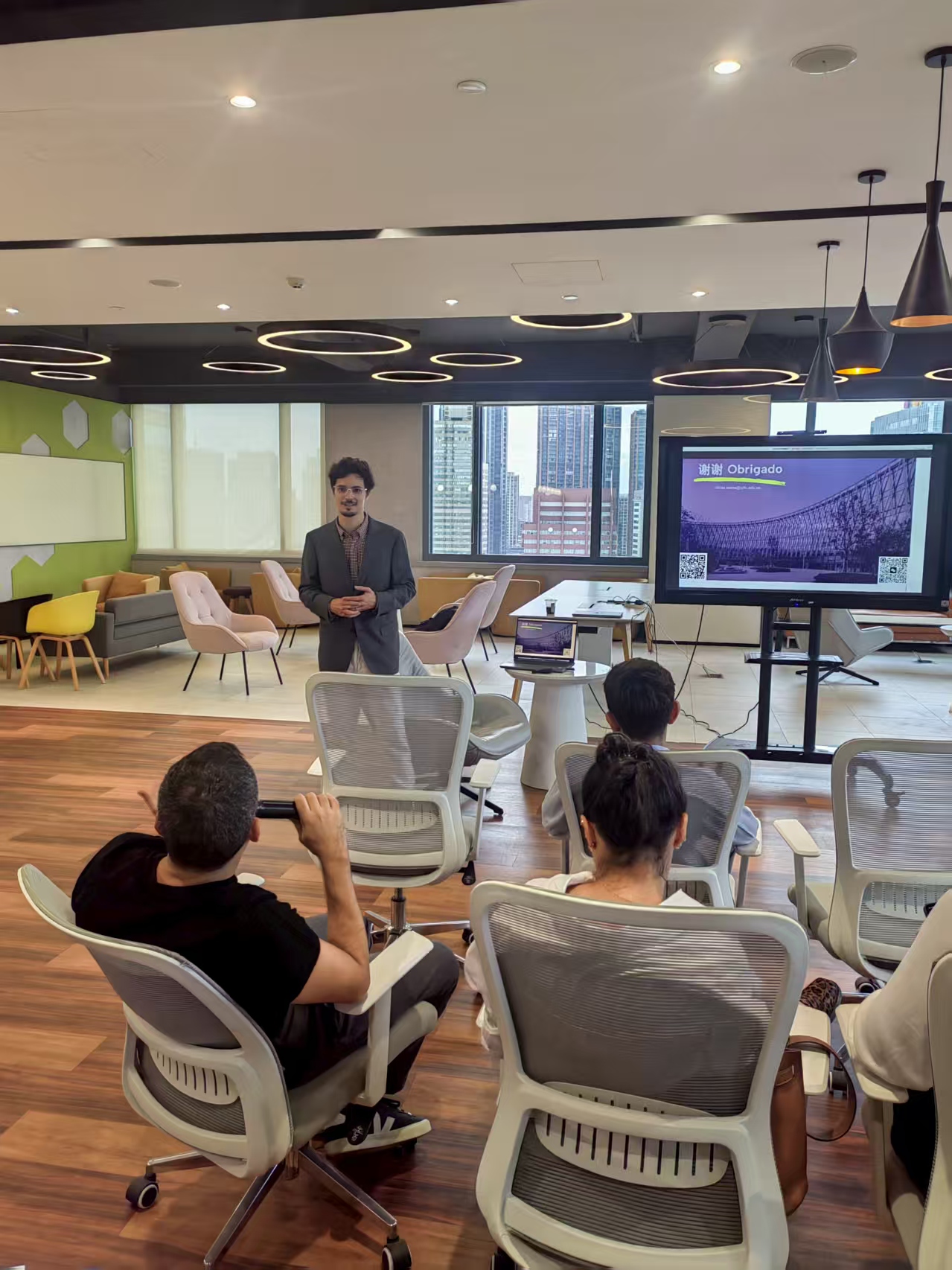
Contributed by Department of International Studies
16 Sep 2025








